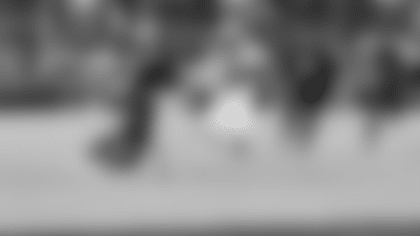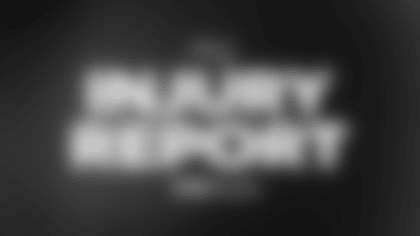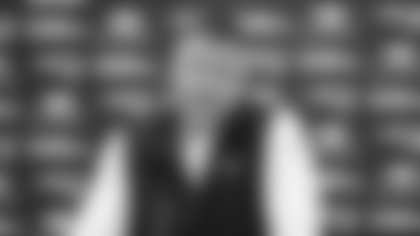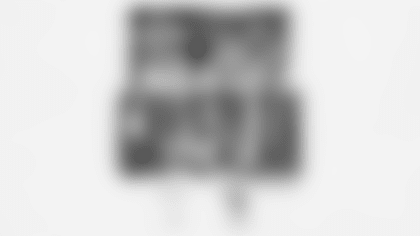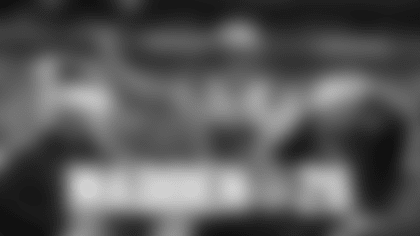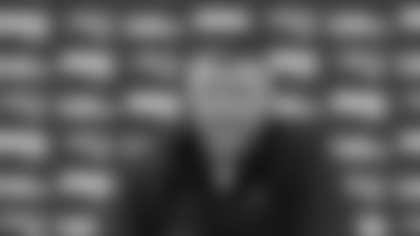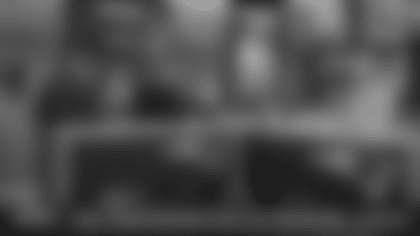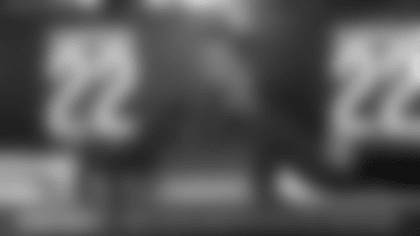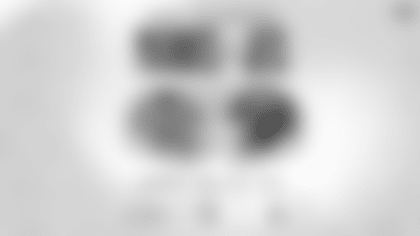[

]()
BB: We had a couple of roster moves today. We signed Ricky Bryant and so he practiced out there today, I am not sure if you saw him out there or not, and Kevin Faulk practiced. I am hopeful that as we go through this week, it will be a situation where every other day or everyday, we will be getting some guys back and hopefully Kevin will be the first here of a few guys in that type of category that are, as I said, a lot of those guys are close and hopefully they will be back out there soon. It was good to have Kevin back out there. As I am sure you saw this morning, it was a good, competitive practice. There was quite a bit of contact. That is just part of the process in getting ready to play, getting the body conditioned to the hitting and taking some of the skills that we do and mixing them in with contact. We did a lot of that this morning and it was good. We will practice this afternoon and move on from it. This is a little bit of a hump day of camp after three days. A lot of times the players start to feel the soreness and the stiffness and getting back into the routine. You just have to keep going. I thought it was a pretty good effort out there this morning.
Q: Rodney Harrison is in mid-season form. He is out there flying around.
BB: I think that is a big strength to his game. He enjoys it. You get the pads on and you take advantage of it.
Q: What is it about Dan Koppen that allowed him to quickly assimilate himself as an NFL player?
BB: I think Dan's strengths are number one he is smart. He is strong. He has good playing strength and he has been in a good system. I think he was very well coached at Boston College. He had a lot of experience doing things either the same or similar to the way we do them both conceptually and from a technique standpoint. I think that the adjustments were still big adjustments but in relative terms something that he adapted to fairly quickly because he had a good background. He plays strong and he understands what is going on there. That is a big part of that position.
Q: Being a fifth round pick, do you think that Dan being around that late was one of those items where a player might work in one system but not another? Did you feel he might fit your system?
BB: You don't know who is going to be there in the fifth round. You don't have any idea. Guys who you think might be there in the fifth, go in the second. There is really no way to know that. I think that are scouting department and the coaches, particularly Dante [Scarnecchia], had a good feeling about Dan. As I said, I thought he was a pretty easy guy to evaluate because he is in a system that is a very good system. They have had a lot of offensive line at Boston College drafted and play in the NFL so it is fairly easy to look at guys and compare them relative to other people, [Paul] Zukauskas and [Marc] Colombo and all of those guys, are better at 'this' and not as good at 'that', but you can get comparisons in a similar system to guys who are playing in this league. [Koppen is a] good shotgun snap guy, never was a problem there and those kind of things. Compared to a lot of guys coming out of college, I thought Dan was a lot easier to evaluate than some of the others that you have tried to look at, so [you say], 'How would they project doing this? I don't know.' You never really see them doing it.
Q: By not signing Damien Woody, does that show the amount of confidence you have in Dan?
BB: No. That didn't have anything to do with it. That situation was what it was. We just weren't the highest bidder in that particular situation. We tried to re-sign Damien. We tried to re-sign him and he went to free agency and signed a big contact with Detroit. So, that didn't have anything to do with it.
Q: What are your early impressions on Guss Scott?
BB: Well, he has only been out there one day. I really don't have a lot to comment on in terms of training camp. Based on the spring camps, the passing camp and the mini-camp, Guss is smart. He comes from a good system. He played at a high level and has worked against a lot of speed. He played corner-type positions in their sub defense for Florida, so you can see him involved in a lot of coverage things that you don't see all safeties doing. I think he has above-average coverage ability for a safety. Smart kid, ran their defense, made checks, made adjustments, and all of that. You can see him kind of controlling the adjustments back there for Florida, and I thought he did a good job for us in the spring. He had a couple of practices out there and he looked all right. We will see how it goes. But I think he has helped himself by showing he can handle our defensive system and understand it and be able to execute what we want him to do in it based on the mini camp. Now, there is going to be a lot more going forward but I thought that was a good indication of his, again, ability to step up and play at the next level particularly on the mental side of it.
Q: Can you see a noticeable result in Rohan Davey from his Europe experience?
BB: I think that is going to show itself more probably when we get into situational things, like situational practices or preseason games, that kind of thing. Right now, it is just more of the execution of the plays. We run the plays that we put in, but it doesn't come up situationally, two-minute drill, third down, and red area. It is just not a game type of situation. It is broken down into different segments because the installation is easier that way. That is really the main thing that we wanted Rohan to get out of the Europe experience. He has done this before, put in the plays, run them and all of that. What he hadn't gotten very much experience at in the two years was game conditions, managing the team, calling the plays, making checks at the line of scrimmage, getting hit, all of those kinds of things. I thought his experience in Europe was very good for that. I think, without speaking for him, I think that he felt that too. When he gets into those situations here, hopefully those will benefit him, that experience. The things that he is doing now, are really the same things that he has done for the last couple of years. I am sure it didn't hurt, but I think that this is something that he is more familiar with. It was the other things that we were really trying to address.
Q: At this point in camp, the mistakes that are made out at practice, are they understandable?
BB: Sure. We can't cover every single thing that is going to come up out there. When you put in 10 or 12 new plays and the defense puts in six or seven new defenses and there is already some stuff in from previous days, the multiples are considerable. It is hard to get every single thing covered against every possibility. You cover the main ones; you cover the ones that you know are going to come up for sure. Maybe the some of the ones that could come up but inevitably there are going to be some match ups and some things are going to develop that you haven't gone over with every player or even if you have gone over it with them, maybe it was just verbally and you didn't actually get to do a drill on it and that kind of thing. So, sure, those are the kind of things where that is what practice is for. You correct those mistakes. You teach it to them off the film so the next time it happens, they have a much better understanding of how it should go and what you are looking for. Now on the other hand, if you have gone over something five times, 'Here is what is going to happen. Okay? Once again, if this happens, here is what we are going to do. Right. Right,' and then you go out there and you blow it, that is a different story. There are mistakes and then there are things that are really a lack of concentration. Missing a snap count or a defensive player being off sides, that is not about, 'Gee, I didn't know what to do.' That is just poor concentration or just a lack of being disciplined in that situation. That is at a whole different level.
Q: You seemed to have a lot of interchangeable parts on this team. You have a lot of depth at a lot of different positions. Do you think you have conscientiously put those spots together that way?
BB: The depth of our team is important to us. All of the roster spots are important. It is not just the top 10 or 15 percent or 10 or 15 guys. Every roster spot is important to us, both short term and long term. What the player can do and what potential does he have to develop and work and fit in the system even though he might not be ready right now, when do we think he could be ready and what can he do when he gets to that point. All of those things are important to us. It is definitely a conscience effort to try to improve the team at every spot right now, even through to the 80, not just the 53, because we don't even know those guys are going to be, but to have as competitive as a camp that we can have from one through 80. Not just one to 40 and that type of thing.
Q: When the salary cap came in, some teams philosophy was to keep the core players and build the rest of the team around them. You seemed to do it another way.
BB: We have done what we think is best for our football team and all of the players are important and we feel like the depth of the team is certainly a critical issue. We try to get as many good football players as we can still understanding that we are going to be in business next year and we can't have all 14-year veterans on the team. At some point you are going to have to have the young players move into the system and take the spots of all the players as they move along. There is a little bit of a balance there. I am not saying it is exclusive.
Q: How long do you think it will be before you can break off into the smaller parts in practice, the situational situations?
BB: We will definitely have it by the end of the week. I would say by Wednesday or Thursday. We play a week from Thursday so that will give us some time to do it at the end of this week. Then, next week as we prepare for Philadelphia and continuing training camp, they kind of run together there, it will be done with some of those situational things in mind. Building off of what we do this week and more specifically what we are going to do against Philadelphia in those situations and try to tie all of them together.
Q: Are you moving right on schedule?
BB: We know how many practices we have to the first preseason game. We know how many practices we have to the first regular season game so we have an installation schedule that, again, with Romeo [Crennel] and Charlie [Weis] and Brad [Seely], we have done this for a number of years. It isn't like our first NFL training camp. We have it basically laid out. There will be some variation in it as camp goes along due to usually some circumstances, which are generally unforeseen. You get a lot of players that aren't able to work in a certain position and you have to scale your practices back a little bit or weather or whatever it is. There are things you just have to deal with in the course of camp. I think generally we are on our installation schedule. What is more important is how we are executing those things and if it is not going well then we are going to have to slow it down and make sure we get the things right before we move onto the next installation group.
Q: How significant of a disadvantage does [Kurt] Kittner face being signed so late? What is the learning curve there?
BB: Well, yes, Kurt has to make up the ground work in the understanding of the Patriots system. It really doesn't matter what Atlanta did now. It is what we do. Kurt is pretty smart and I think that probably from his experience in Atlanta, that he is able to take some of the things that we have, change the terminology around and it makes sense to him because they are similar concepts to what he did with the Falcons. He is a smart kid. He was in a good passing offense at Illinois. They did a lot of things in terms of reading coverage, full field coverage reads, some of their audible-ing and blitz adjustments things are similar to what we are doing in one aspect or another. I think overall he comes from a pretty good background, maybe similar to what I was just saying about Koppen. It wasn't like they were running the veer. He had a pretty good understanding of a lot of those things, spread offense, two-minute, they were in a lot of that. Overall I think he has a good background. I think he is picking things up pretty quickly and honestly I don't think it will be a big problem. He would be further ahead if he had been here last year. I am not saying that, I can't think of a time even when he goes in the huddle, 'Okay, what do I do on this play?', or, 'What is going on here?' I think he has been able to process that pretty well.
Q: Was he a guy you had interest in coming out of college?
BB: Yes, sure. We did.
Q: You looked at him?
BB: We look at them all. I think that Kurt did a good job. His team won a lot of games. He showed that he was an efficient quarterback and he could take the team to a good level of performance on a consistent basis. He is a pretty accurate thrower and when he was released by Atlanta, we tried to pick him up. The rule that he has fallen under, this 10-day waiver rule, he was on waivers for 38 calendar days or whatever it was. It was 30 business days. So he effectively missed over a month of football in those spring camps when he should have been able to participate somewhere or another. It was unfortunate but that is the way it happened. Anyway, that is the story on him.
Q: Do you concern yourself with how the team comes together in the locker room? Is that something you can control?
BB: No, I don't think I can control it. I don't think you can orchestrate it. I don't think you can sit there and say 'You two guys are going to be good friends and you're going to like him and you're going to really like him'. I don't think you can do that. I think you put people together in a team environment and the feeling and the chemistry of the team grows from the experiences that they go through together. Whether it is a practice like this, whether it is a game situation, or something else that happens, whether it is a Backgammon game or a conversation, whatever it is, the team grows together and they develop their own chemistry and personality. And I think each year is different, even if it was the exact same group of people, which it never is, from one year to the next, the experiences of one year would somehow or other change the way the group works together relative to the year before. I think that is just the way it is and the team has to develop it on its own. And I think it is a lot better that way, that way it is sincere and it is genuine and it is not somebody else trying to make it go down a certain path. If that is the way it goes, great. So I think it is my job to put the team together, to put them in that environment, so that it can happen. How exactly it is going to work out, I don't know, and each year it is going to be different.
Q: Obviously, everything doesn't stay the same from year to year. Did that make it more rewarding to win the Super Bowl last when you had to replace half of your starters?
BB: Well, it is rewarding to win that championship no matter what the circumstances are you win it in.
Q: Was it more rewarding than if you would have had 22 starters coming back?
BB: We probably would have held it up just as high.
Q: How is James Williams doing so far in camp?
BB: I think James has been out of football and no matter how many sprints you run, or how many pass sets you do, it is not the same as getting out there and doing it. I think things are coming back to him, his techniques, and his timings, and his hand punch and all that. It is still something he hasn't done for a while and, I think that in order to give him a real fair evaluation, it is going to take a little time to get re-acclimated to not only a new system, but really playing football again and being around football.
Q: Have you seen some of the flashes that made him a staple in the Bears offensive line?
BB: Oh, yeah, I think you can see his physical presence and the space that he takes up. He's a pretty smart football player. He works hard at his job and is very well prepared. He does a lot of little things that give him an advantage. Plus, he's a big, physical [player] and has some physical skill.
Q: By signing Williams and having Tom Ashworth does that mean that Adrian Klemm will be able to show some more?
BB: I think it is up to every player to show as much as they can to create as good an opportunity for themselves as possible. And nobody can do that but the players themselves. Every player is in the same situation. It is his job to be in condition. Nobody else can do that for him. It is his job to learn his assignments and the plays. Nobody else can do that for him. And it is his job to go out there on the field and perform at a level that creates a role for himself, whether that is as a starter or a spot on the team, a situational thing, the punt returner or whatever it is, he's got to go out there and perform well enough to create that roll for himself. We're not gong to just give it to any guy just because he was picked from a certain round, or whatever. We don't care about that. Either he performs it and earns it, or somebody else out performs it and that player earns it. That is kind of how we approach it. So, what Klemm does depends on Klemm, what Ashworth does depends on Ashworth, and what Williams does depends on Williams. And we'll play the best people and if that is moving them around in different combinations somehow, or with the skill people using different formation groupings to work to get the best people on the field, then that is what we'll try to do. So, that is our approach to it. We don't try to set up anything for anybody. It is really pretty much the same for all of those guys on the team.
Q: When do you reach the point when you let a player go that can't practice due to injury? When do you make that choice to go separate ways?
BB: I think every situation is different, but when you're sure. When you're sure that you can't wait any longer, or, for whatever the reasons are, you're at a fork in the road and you have to pick either one road or the other. You've come to the end and you've got to do something. I can't tell you when it is going to be for any guy or situation, but just from experience, you know there are certain things you can go along with for a while and sometimes they resolve themselves, and then there are other things when you reach a point where you've got to take a course and that is it. When those decisions get made, we've reached that point. Sometimes you hold it off for as long as you can and then you come to a cut-down date and then you have to follow the rules and make the decision at that point. They force you to do it, or the rules have forced you to do it. So, it could come at a couple of different situations, but ultimately that is the way I feel about it.
Q: Can you talk about Rodney Bailey's status, since he missed practice yesterday and today?
BB: I don't really have any update. He definitely won't be out there today. We'll try to get a little more information on exactly where he is, and, when we do, we'll let you know.
Q: What can Rosevelt Colvin and Corey Dillon do for this team if they are at their best?
BB: Well, they're on the team because we think they can help us win, and, again, whatever role they create for themselves, and what they establish will be based on what they perform on the field, and what they show they can do, and how it works in with all the other people we have. At this point, I'm not going to sit here and say that this will be so-and-so's role. We'll see how it develops. That is what training camp is for. What we do right now in training camp is that everybody pretty much does the same thing. All the backs run the same plays, everybody rotates through and sub-defenses and regular defenses and all that. And then you reach a point in camp, and again, it is not always the same time for all of the players, where you start to say 'OK, I think this group will work pretty well together doing this, and if we get into a passing situation we want to adjust a little this way, and this is how it is going to tie into the kicking game and so forth. It could be at the end of the first week, it could be at the end of the third week, it could be at the end of training camp. How those roles develop and exactly what they are, and we've all seen them change from year to year. Sometimes a guy does one thing for a team one year and then the next year their role is different. And that has certainly been true here.
Q: What did you see in each of them when you signed them?
BB: Well, when we signed Rosevelt last year, our main goal at the end of the 2002 season, heading into 2003, was to get younger and faster on defense. So, Rosevelt certainly fit that criteria and he had been an accomplished and productive player for the Bears, with a lot of the other characteristics and traits that we look for in players in terms of intelligence, work ethic, leadership, dependability and all that. Corey has been a very productive runner in this league. He is a big guy with power, strong on blitz pickup, he's played on al three downs, and at that point in time we didn't really have a player on our team that had those qualities. What role that is going to turn into, I'm not sure, but he brings an element to that position and qualities to that position that are a little bit different from some of our other backs, in addition to the production.
Q: What was your reaction to the Nomar Garciaparra trade?
BB: I don't even know what they got for him or who else was involved in the trade or anything else. I just heard that they traded him.
Q: When you heard it, were you shocked?
BB: No, I wouldn't say that. It has been talked about for a while. It has been talked about all the way back in the offseason. I'm sure they did what was best for their team and I respect that.
Q: Can you talk about what it is like to part ways with a player who could be considered a New England sports icon, like Garciaparra was, having dealt with it yourself?
BB: Well I really can't speak to this specific one because I don't know enough about it. When I make a decision, there is only one thing I think about, and that is what is best for the football team. I can't take a poll of everybody and go by what the poll says. I don't make a decision independently, I certainly would consult with the people in the organization, and that could be a number of people depending on what the circumstances and the issues are. I think you want to make sure you have full knowledge and understanding of all of the information, all the facts that you have. Sometimes you don't have a lot of concrete facts, sometimes it is just projections on how you think something is going to turn out. You have to go with what the information tells you is the best decision for the football team. I don't really believe in the term 'gut decisions.' I'm not big on that. I'm big on trying to get the information, trying to analyze it and doing what you think is best with that information rather than just 'Well, this is the way I feel today'. I have a hard time with that one.
Q: How does Keith Traylor look on the nose?
BB: I think Keith has really done a nice job so far in camp. When we put him there in the spring camps, even though he had played on the nose, the techniques we play are a little bit different than some of the techniques he had played as a defensive tackle in Chicago, or even in Denver. So, I think it took a little bit of an adjustment for him to get used to the couple of different blocking schemes in there, but I think he has picked it up very well as the pads have come on. He looks a lot more comfortable, and, again that is not really uncommon because it is hard for a defensive lineman, when you're not in pads, to really feel the pressure and feel the blocking angles like it is when you're in full contact like we're in out there. So, I think that Romeo, Pepper [Johnson] and I were just talking about it last night, about how he really has a good, natural, well it is not really natural since he's been in the league 13 years, but he has a good feel for blocking pressure and leverage and angles, and his hand placement and so forth, from playing right head up on the center, which he, again, even though he has been on the center he hasn't played the head up technique like we're playing it. But, I think that overall he's come along pretty good and, for a big guy, you can see that he has some quickness and he runs pretty well.
Q: Do you think he puts extra pressure on himself because he played with Ted Washington and he's now taking his place so to speak?
BB: I don't think so. I've talked to him about that. His style of play is different from Ted's as probably is every other defensive tackle's style. Ted had a unique style. I think there are some things that Keith does a lot better than Ted and there are some things that Ted can probably do a little better than Keith. So, I don't think that is any breaking news story, but Keith an I have talked about that, and I think the key thing for him is to develop his style and play to his strengths, not play to another player's strengths, play to his strengths and try to work on the things that will keep himself from getting in trouble. And he does that, and I think he understands that.
Q: Has Vince Wilfork shown flashes yet in camp?
BB: Oh, sure. He's another big guy that plays strong, that can run, that has some quickness, that has pretty good instinctiveness in there. I mean, that position has been pretty competitive so far, with Ethan [Kelley] and Vince and Keith. I think they're all coming along. It is early, but they're all coming along. It is going to keep getting harder as the offense puts in new plays and a little different wrinkles, and plays that sort of look like what they've been playing but now there is a little compliment to that. So, we'll see how it goes when they get exposed to all of it, because it is going to keep getting harder here.
Q: Do you feel a little better about that position now?
BB: We'll see what happens when the games start.
Q: Can you define the difference between head up and what Traylor was doing?
BB: Well, for one thing, just fundamentally, the nose is head up on the center and both the guards are uncovered. So it is really three people that could potentially block him. If you line a guy up in a gap, say the center guard gap, there is really only two people that can block him. That right there is one big difference. And secondly, if either one of those guys do block him, they're blocking him at an angle unless the double him, whereas when you're head up, you're not being blocked at an angle by the guy in front of you and the double team is coming more from the side more than it is coming from an angle, and it is probably a little easier to split it or to play between it. So, the alignment and the combinations there are, and again, for a defensive lineman and you're only lined up this far away form him and all of that stuff happens instantaneously, the read and recognition of it and all is a big thing. I'm going to sit here and say there's 90 combinations, there's maybe 10 different combinations based on how hard they come off and whether they are trying to get you up the field, or block you down, or move you out or whatever, so there's maybe 10 or 12 things, but when you have to recognize them in just a fraction of a second, that is really where the skill of it.
Q: Are you any closer to signing Benjamin Watson?
BB: I don't know. I don't try to gauge closeness or farness away. When they're here, they're here. Like I said, they could be this close and it could take a month or they could be this far and it take an hour. And that is the way negotiations go. I'm not doing the negotiation. I don't know. When they're here, they're here.
Q: Who is the guy who you hope will be the next off of the PUP list?
BB: I don't know. Whoever is ready. I think there are a lot of guys there who are close, and I think the determination is, a. when the player feels like he's ready, and b. when he's shown the evidence to the strength coach and the trainers and the doctors and they think that he's ready, and, finally, when the player has been able to string together enough workouts where there's not just one workout and maybe the next day he comes in and he's tired or he's sore and now something or other has maybe felt the strain of that workout, that he can string together enough workouts where he feels good the next day after he has pushed it to the limit, and then the day after that. Again, between the player and the coaches and the medical people, where collectively the decision is made that the guy is ready to go, and he feels like he is ready to go. When that is, is when all that comes together. When that comes together, I don't know


